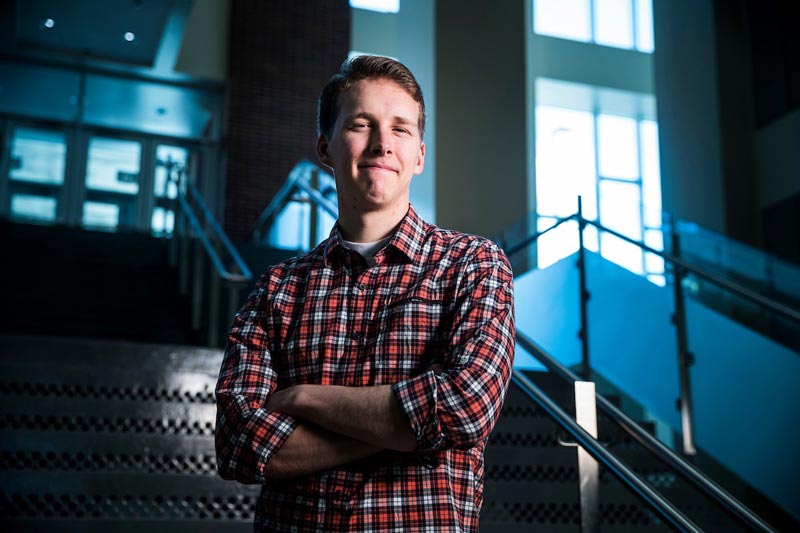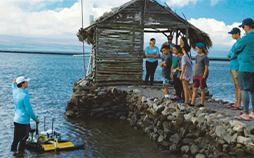Becoming a Scientist Through Mentored Learning
Jordan Finnell started college skeptical of science but being mentored expanded his perspective and led him to degrees in neuroscience, biochemistry, and molecular biophysics.
May 2017

James Lee always thought he’d work in computers—until he served as a missionary in southeast Idaho. Teaching the gospel among the good, salt-of-the-earth people in small Idaho towns, James realized he needed a career that involved interacting with others.
“I made a 180-degree change and decided to pursue a career in medicine,” he says. “Fortunately, BYU has a degree in bioinformatics.”
Bioinformatics—using computer models to tackle complex biological problems—gave James an opportunity to combine his newfound interest with his computer experience.
Not long after changing his major, James started doing research in Dr. Stephen Piccolo’s laboratory, where he noticed a poster advertising a fellowship at the Simmons Center for Cancer Research. To qualify, he’d have to submit a proposal for a project. Tapping into ideas he’d heard floating around the lab, James proposed using existing research and computer models to improve the accuracy of prognoses for cancer patients. “Will the patient live for many more years? How aggressive is the cancer, and how will it affect them?” James says, describing his research questions. “Knowing [the answers to those questions] can be of use for a clinician and change the approach they take and the prognosis they give.”
To his surprise, James was accepted for the fellowship, and in summer 2015 he worked full-time to advance his project. He enjoyed the experience and learned so much that he submitted another proposal in 2016 and spent a second summer doing research.
“The Simmons Center provides an invaluable interdisciplinary education,” he says. “Each week professors from different departments and colleges present on what they’re researching, and before each presentation, they have you read a landmark or classic article related to it. You’re exposed to a lot of literature and lots of different facets and angles of cancer research.”
After graduation, James is headed to medical school (though he hasn’t chosen which one yet). Thanks to his experience at the Simmons Center, he is confident that he’s ready for the challenges ahead. “I can’t think of a better way to supplement classroom education than actually applying what you’re learning,” he says. “Not only does that help you develop critical-thinking skills, but it also makes what you’re learning become more meaningful. Mentored research really is the end goal of everything we do in the classroom.”
Make a Gift
Jordan Finnell started college skeptical of science but being mentored expanded his perspective and led him to degrees in neuroscience, biochemistry, and molecular biophysics.

Reefs worldwide are constantly threatened. The Molokai-based conservation nonprofit ‘Āina Momona called on BYU for help.

Why do your muscles get sore after the first or second workout but not after the fourth or fifth? A group of BYU exercise science students set out to answer that question. Mentored by Professor Robert Hyldahl, student Amanda Gier suggested they look at the role of T-cells.